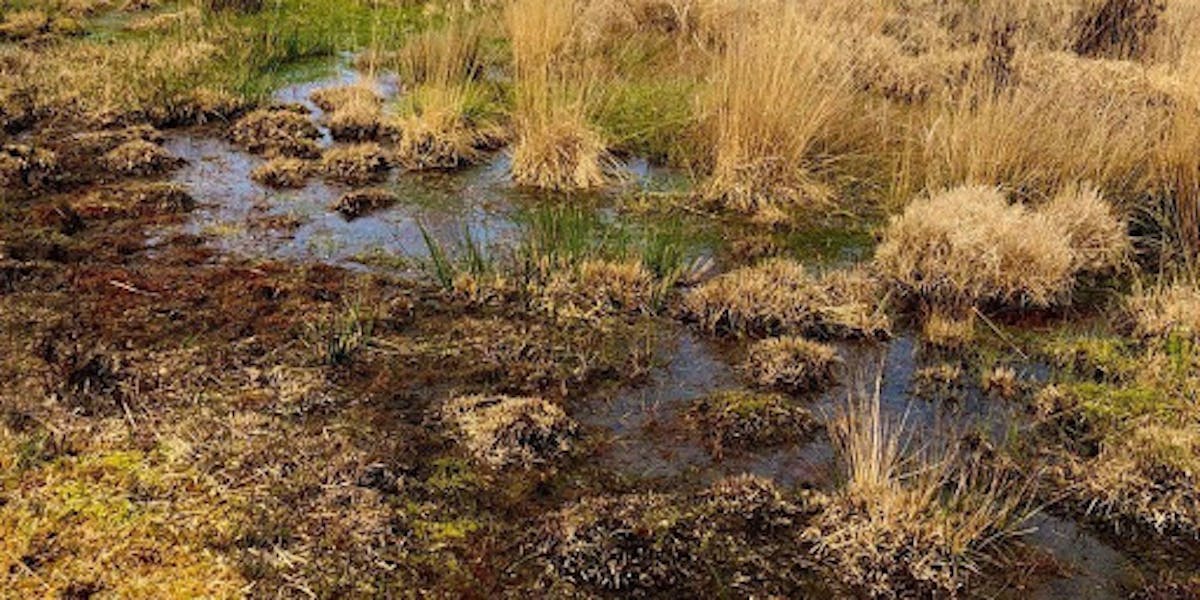Lifestyle
Why Is Peat Compost Being Banned?
5min read
What are peatlands, and just how important are they when considering the climate? With a ban of selling peat compost to gardeners to come into effect in 2024 in the UK, the importance of peatlands are being brought to attention. Did you know one of the most impactful ways of improving your impact on the planet is switching to a vegan diet - you can check out our menu of delicious dishes here
What is peat?
To answer an immediate question, no, everyone you know called Pete isn’t being cancelled!
Peat (with an ‘a’) is the name for ‘plant material which is partially decomposed’ and forms in waterlogged areas creating moors, bogs and fens.Rainfall causes water to build up in these areas and prevents plants from decomposing. This results in slow growth and accumulation of peat - only approximately 1 mm per year! (link)
This slow build-up means peat can be classified as a fossil fuel.
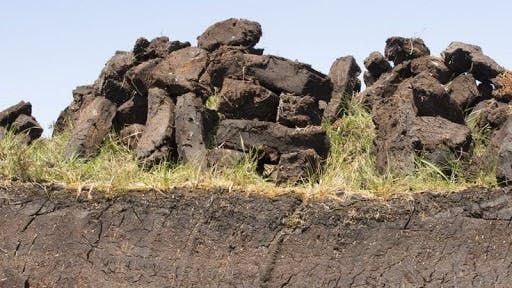
Photo credit: BBC
Why is peat an important ecosystem?
Peatlands have been working hard for us for thousands of years and many of us don’t even know it. There are several critical functions in an ecosystem (a natural environment including the interaction between plants and animals) that peat performs when in good condition.
Carbon store
Peatlands (the soil and above wetland) are the largest naturally occurring land based carbon store due to the high amount of carbon found in plants. The amount of near natural peatland on the planet is nearly equivalent to the size of India and removes 0.37 gigatonnes of carbon dioxide (a prevalent greenhouse gas) each year - this is more carbon storage than all other plant types worldwide put together despite only covering 3% of the land's surface! (link)
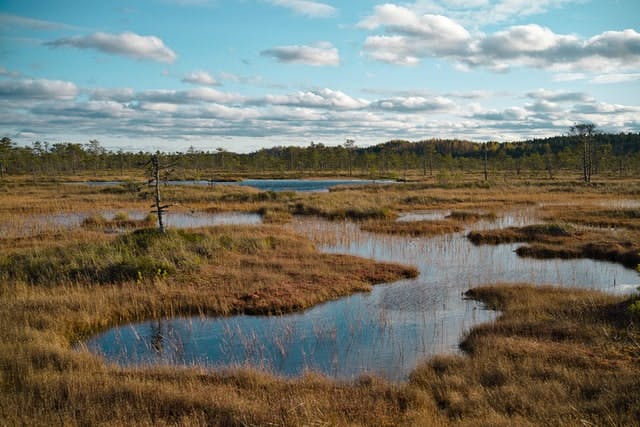
Water management
Being a waterlogged area, peatlands hold up to 20 times its own weight in water – call them our environmental ants if you like (link). This not only helps to prevent flooding but also provides safer drinking water with fewer pollutants.
High levels of biodiversity
Individual peatlands can contain a large amount of different species which indicates a healthy habitat, some species are only found in these areas. The different species and complex relationships they have with each other are important when it comes to peat accumulation.
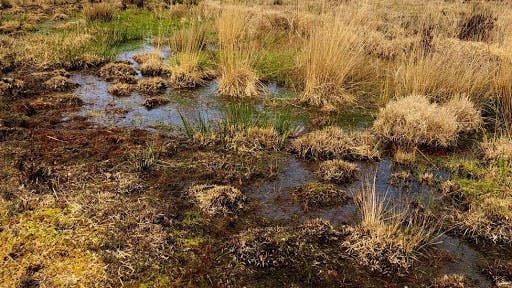
Photo credit: BBC
Why is peat compost bad for the environment and why is it being banned?
For peat to be healthy and function efficiently, it must remain wet. Its extraction for human use dries the peat causing the area to degrade and also increases the risk of wildfires. These two factors allow for increasing amounts of carbon dioxide to be released into the atmosphere, making them one of the biggest sources of greenhouse gases.
The amount of peat compost used for amateur gardens is estimated to be 3 billion litres per year with commercial extraction removing 500 years of accumulation over one yearly period (link). Due to the slow accumulation of peat, this current use of the resource is considered unsustainable.
What peat alternatives can I use?
There are already plenty of options out there that you can use to show your plants some love and keep them growing strong (or try to anyway!) and with the peat compost ban coming into effect, more and more options will become easily available.
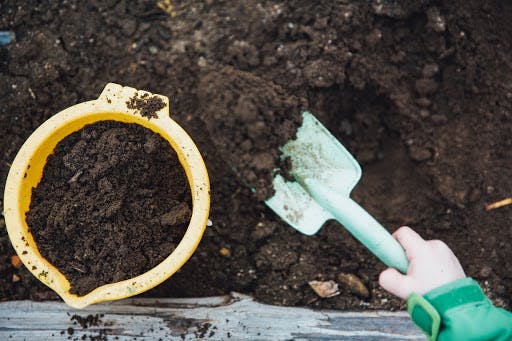
Homemade options such as leaf mould and garden compost are a sustainable and cheap way to reuse your waste and keep your garden satisfied if you have the space. Finding the balance between green, leafy nitrogen-rich material and carbon-rich materials such as cardboard and woody stems is vital in keeping your plants happy!
If you don’t fancy making your own, peat-free compost is already available to buy alongside alternatives such as bark chippings and coir (a waste product from coconut plantations). Just make sure you follow the instructions to ensure your plants are receiving the amount of nutrients they need.
Our favourite alternatives:
- for peat’s sake (great name) offer coir with no artificial fertilisers which is perfect for encouraging healthy root growth.
- Milk&More are most well known for dropping off your morning milk but they can also drop off peat-free compost right beside it!
- The Compost Shop offers coir alternatives including seed starter kits for those who are just getting started.
Just the beginning
Whilst the ban of peat compost coming into force in 2024 only applies to garden centres, it is a great first step in protecting peatlands. Not only this, it is drawing attention to and educating the importance of these ecosystems and why it is vital to not only protect them, but to start restoring them!
By Lizzie Dymond
Lizzie is part of our fantastic Customer Delight team, she has a passion for all things sustainable and can't get enough of our Protein Power Bowl. On her days off, you’ll find Lizzie nose-deep in a gripping fantasy book, dancing around her kitchen to Taylor Swift and baking chocolate cookies or taking in a show at the theatre.
Let us take care of dinner
We help to make eating more plants easy and delicious. Fancy letting us take care of dinner? Check out our delicious meals here.
Shop now
